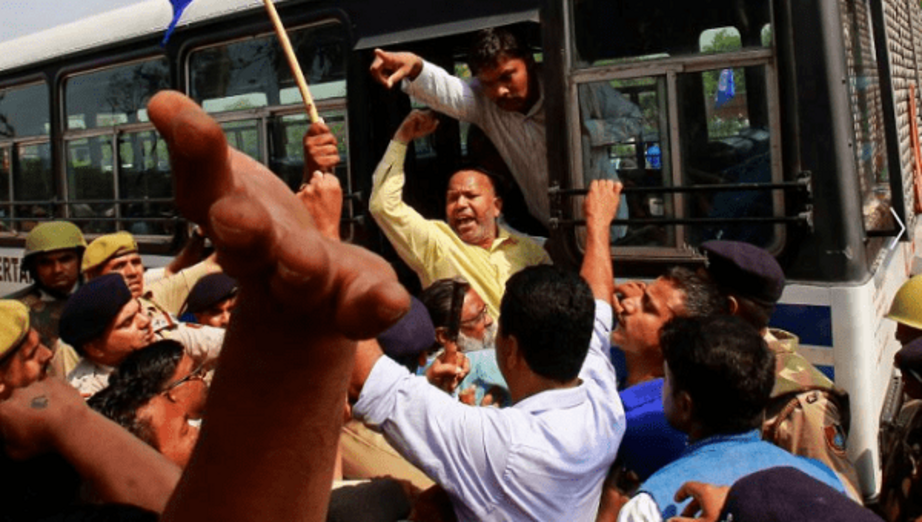10 killed in Dalit protests
... India to Revisit Suspension of Prevention of Atrocities Act
"There's no protection for Dalits in India, especially after the BJP came to power," president of the All India Dalit Rights Federation said.
After Dalit protests swept India Monday, in which at least 10 people have been killed, the country's top court has decided to revisit its decision over diluting the Scheduled Caste (SC) and Scheduled Tribe (ST), Prevention of Atrocities Act.
The Supreme Court said it will look into an appeal submitted by the government on the issue. India's Home Minister Rajnath Singh said at a session in the Parliament Tuesday, "I want to assure the people that there has been no dilution whatsoever by my government, rather after coming to power and examining the SC/ST Prevention of Atrocities Act, we have taken a decision to strengthen it."
“The government is appealing against the court order but it is a responsibility of everyone including all political parties to ensure peace,” Singh said in Delhi, where the Dalit protests caused traffic chaos, according to the Hindustan Times, a national daily.
On Monday, one of the country's most marginalized Indian communities, Dalits, led a nationwide 'bandh' or general strike, blocking roads and shutting stores, to fight Indian top court's latest decision of suspending Prevention of Atrocities Act of 1989, which had allowed authorities to arrest those accused of abusing members of the community immediately following the filing of a complaint.
"There's no protection for Dalits in India, especially after the BJP came to power," Kandula Ananda Rao, the president of the All India Dalit Rights Federation, said, according to the CNN.
Those referred to as "Scheduled Caste," "Scheduled Tribes" and Dalits have a long history of suffering atrocities inflicted by the upper caste members on the social hierarchy for centuries. Relegated to the lowest rungs of the Indian caste system, they are often denied basic civil rights.
Over the years, the privileged upper caste communities have attacked this affirmative action and the reservations in education and other sectors for the SCs, STs, and Dalits creating more friction for the marginalized communities.
"In the last three, four years, the atrocities have been rampant. They have increased," Ramesh Nathan, the national convener for a coalition group of Dalits' rights organizations that worked to strengthen protections under the SC/ST Act, told the CNN. "There are many lynchings, many attacks against our community."
"Now the environment is very, very scary, it is for everyone. It's not only for Dalits, it's for Adivasis(tribals), Muslims and others as well. It's become an environment where no one is safe."

